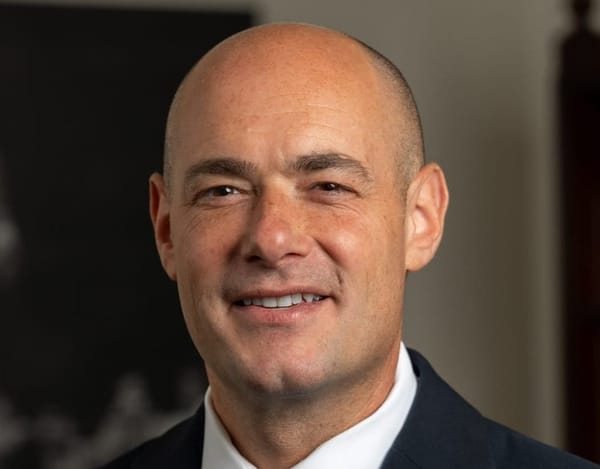Senate Majority Leader Thune Expected to Prioritize Spectrum
Sen. John Thune, R-S.D., would likely rein in Sen. Ted Cruz on USF, experts said.
Jake Neenan

WASHINGTON, Nov. 14, 2024 – Republican senators have picked John Thune from South Dakota to lead the party’s majority in the chamber. Industry experts said Wednesday they expect he’ll be interested in getting a spectrum bill passed.
“I think he will generally delegate to Senator Cruz, but I would say spectrum might be an area that continues to be highly engaged in,” said Ansley Erdel, managing partner at Salt Point Strategies. She spoke at a Schools, Health, and Libraries Broadband Coalition webinar.
Thune and Ted Cruz, R-Texas, are currently on the Senate Commerce Committee which Cruz is expected to chair in the upcoming Congress.
'The two introduced a bill this year to restore the Federal Communications Commission’s lapsed ability to auction off spectrum bands. They clashed with Committee Chair Maria Cantwell, D-Wash., who put forward her own spectrum bill that would have tapped auction proceeds for the Affordable Connectivity Program and set aside more airwaves for spectrum sharing.
Cruz ultimately stepped in to block Cantwell’s bill from being marked up – the GOP was generally opposed to extending the now-shuttered program and still favors exclusive spectrum licenses used by major wireless carriers to the sharing model.
Erdel said “there is some deal to be had” on attaching spectrum legislation to a budget reconciliation bill, which Republicans are expected to put forward after securing majorities in both chambers. “To the extent that Democrats are able to impact that, I think they will try.”
She noted the Defense Department has “been able to overcome” bills that would see them “move, clear, and auction spectrum where they operate. I don’t know that that will change.”
Universal Service Fund
Andy Schwartzman, senior counsel at the Benton Institute for Broadband & Society, noted that Cruz – seen as the most likely candidate to chair Senate Commerce – favors moving the FCC’s Universal Service Fund to Congressional appropriations. He said he expected Thune to block any such legislation from a floor vote.
“I don’t think Senator Thune and a number of other Republican senators would be particularly happy” about the idea, Schwartzman said. The roughly $8 billion-per-year broadband subsidy is funded by fees on telecom providers, which proponents argue is more stable and shields USF from the partisan fights that doomed the ACP.
Any USF legislation would probably come after the litigation around the fund is resolved, Schwartzman and Erdel agreed. The Supreme Court is set to consider Friday whether to step in and review a Fifth Circuit ruling that found the program’s contribution scheme unconstitutional.








Member discussion